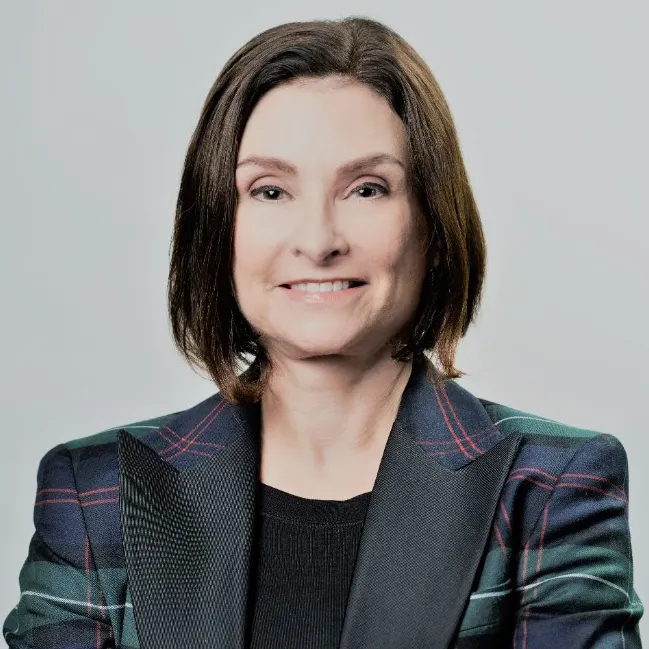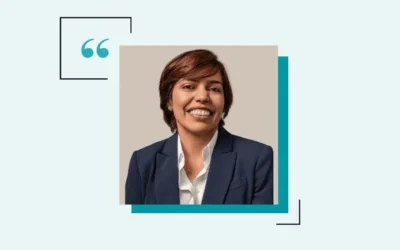As the finance chief of the Institute of Internal Auditors, Ann Cohen has spent a decade navigating a role and an industry that has grown increasingly complex.
From geopolitical risks to ESG expectations and the acceleration of digital transformation, she has watched the role of the CFO evolve alongside the audit function it supports. The IIA, whose members include nearly 200,000 certified internal auditors across 170 countries, sets internal audit standards, provides certifications and offers training and research opportunities for those working in internal audit.
In this conversation with CFO.com, Cohen reflects on how audit quality has changed, the growing demands on internal audit teams and how members of her organization are thinking about the role of emerging technologies like agentic AI in the audit function.
Cohen also discusses what’s kept her around for a decade, why strong internal audit relationships are critical and her perspective on issues shaping the profession — from the 150-hour CPA requirement to the skills and mindsets that define successful finance chiefs.
Ann Cohen

CFO, Institute of Internal Auditors
First CFO position: 2005
Notable previous employers:
- Woodfield Country Club
- Bainbridge Companies
- Taylor Woodrow Developments
This interview has been edited for brevity and clarity.
ADAM ZAKI: Now that you’re in your 10th year in the CFO seat at the IIA, what would you say has changed most about your role since you started?
ANN COHEN: Life as a CFO has just become so much more complex. The world has changed. Just look at the difference between the pre-pandemic and post-pandemic environments, for example. For my peers and me, factors like geopolitical risk, ESG expectations, new regulations and digital transformation have all added layers of complexity. And they’re still evolving.
AI is a great example. These emerging risks have made it a much more dynamic and difficult world to operate in. As a result, the audit process itself has become more complicated. We’ve heard directly from our members, concerns such as ‘Our auditors are struggling’ or ‘Why is this harder than it used to be?’ The audit process itself is more difficult now.
The way audit has changed — how we work with people, how we access information, how we report — continues to evolve. To be effective, internal auditors now need to understand operations deeply. They need awareness of geopolitical factors, the ability to evaluate evolving risks and a strong grasp of internal controls. That level of insight takes work. It’s a major challenge that makes what I do here really interesting.
When you’re developing global standards, how do you ensure they stay practical over time?
We stay close to our stakeholders — our National Institutes, global network, sponsors and regulators. We’re constantly in listening mode: What’s going on in your environment? What’s shifting geopolitically? What risks are emerging in your region? Through advocacy and direct engagement, we keep a pulse on global developments. That helps us make sure our standards stay current and relevant.
Internally, how does your audit oversight process work?
We have a chief audit executive who reports to our CEO, which is the standard structure in our profession. It’s important they don’t report to me as CFO because that could create a conflict; after all, they’re auditing areas under my responsibility.
That said, we work very closely together. I see our internal audit leader as a strategic partner. We regularly collaborate on identifying risks, evaluating controls and improving our processes. She was actually in my office earlier today to talk about some IT-related topics. We’re in constant contact.
What do you think makes a healthy relationship between a CFO and their internal audit team?
Transparency and trust are key. You have to be open and honest with one another. When the internal audit function identifies a finding, CFOs must ask questions — what they saw, how they found it, what their thinking was. But it’s always from a place of curiosity, not defensiveness. That dynamic only works when both parties trust each other as true strategic partners.
What is your role in developing the talent around your internal audit function?
Our internal audit function works across the entire organization. So that means not just with me, but with our certification, membership and learning teams too. They provide insights into how operations are running, where control weaknesses might exist, and how risks are shifting. They also work closely with our risk manager to align on strategy. Everyone has their own strategic plan, and internal audit plays a critical role in helping us meet those goals.
Can you provide details on how you and your members are talking about the role of agentic AI in audit?
From a long-term perspective, there’s definitely interest in using agentic AI. But right now, things are changing so fast. Everyone is trying to wrap their heads around what it means and how it will evolve. There’s risk involved, like with all digital transformation, and the pace of change is dizzying.
I read about it every day, and even then, it’s hard to keep up. I can tell you that people are asking, ‘When will this settle enough that we can implement it in a sustainable way? Where does it make sense for our organization? What will it cost?’ Everyone wants to get there, but it’s going to take time.
What are your thoughts regarding the 150-hour CPA licensure requirement changes? Do you think it’s lowering standards or removing an unnecessary boundary?
There are some valid points on both sides, but the changes’ impact will likely not be as noticeable as if public accounting’s other major issue were addressed.
The one piece we can’t ignore is compensation. Aspiring CPAs need to be fairly compensated. When they graduate from college, they should be earning competitive salaries — comparable to other industries that may or may not require less schooling.
Whether states keep or drop the 150-hour rule, we have to make accounting a competitive and attractive career path for all, and I think that conversation needs to be geared more towards compensation for those working in entry-level accounting positions.





